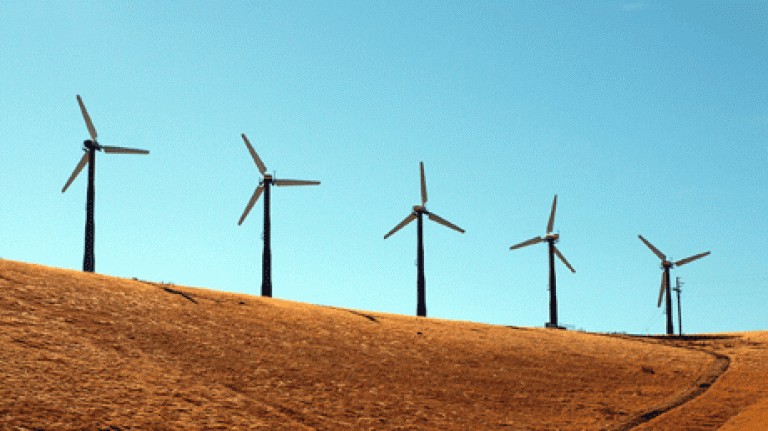Wind2050
Wind2050: local acceptance of wind power projects in Denmark, Ireland and the UK

3 May 2016
Wind2050 will identify and analyse key factors that drive the local acceptance of wind power in a comparative study across three countries: Denmark, Ireland and the UK.
Wind power systems are expected to contribute significantly to Danish fossil free energy production by 2050. Despite initiatives aimed at increasing public participation and local acceptance, both public and private bodies continue to experience an increasing lack of local acceptance of wind power projects. This has been a common issue across Europe, with the factors driving and influencing acceptance appearing to differ depending on economic, political and cultural context.
The Wind2050 project is unique in that it will draw on international experience to understand the dynamics of local acceptance of both off-shore and land based wind energy projects in DK and compare these with projects in Ireland and the United Kingdom focusing on the institutional and regulatory context, as well as technical and social aspects in project development.
The project seeks to examine both the factors that influence local acceptance and the influence of governance, project development and deployment of wind power. The project applies an interactive, research framework involving researchers from legal, social, economic and technical sciences who continuous exchange knowledge with end-users (including local authorities, industry, interest organisations, citizens and other local actors).
The overall analytical perspective considers wind power facilities as socio-technical systems, which allows the work packages to use different scientific perspectives and methods in order to understand why and how different institutions, regulations, actors and perceptions induce or block deployment of wind power. The analyses are finally integrated in strategic scenarios, which provide recommendations and decision support for future deployment of wind power and other renewable energy sources.
- Wind2050 People
Chiara Armeni
External partners:
Technical University of Denmark (DTU) Copenhagen University Aalborg University Queens University Belfast KORA Danish Wind Energy Association CONCITO RPS Group, Ireland
- Outputs
- Understand the co-shaping of local wind power projects and local acceptance including how controversies shape the public debate in order to guide policy measures (WP1);
- Analysis of public decision-making, including planning legislation and processes, and specific policy measures affect local acceptance of wind energy projects using Danish, Irish and UK case studies, (WP2)
- Identification and description of the project development practices and their influence on local acceptance in collaboration with a range of private sector actors (WP3);
- Analysis of preference for local acceptance, estimation of the associated acceptance costs and application of the acceptance cost in cost-efficiency analysis of wind deployment path for Denmark (WP4)
- Develop strategic scenarios for 2050 based on the analysis in the project and end-user workshops considering a range of technical, economic and social uncertainties (WP5);
- Disseminate the findings using academic, practice-based and social media in collaboration with a wide range of actors throughout the course of the project (WP6).
- Impact
Wind2050 will contribute to international research on renewable energy technologies adding new insights into how local acceptance can be mitigated by policy-makers, public authorities and private wind power developers. The scientific findings of the project will form the basis for recommendations to both improve and guide public regulation and decision-making processes and to ensure private project developers mitigate the risk of an unsatisfactory implementation of wind power projects. These are actions that are vital in order to achieve its target of a fossil independent energy system by 2050.
Danish Government The Danish Government wants to stimulate performance of the wind power system, but does not know the costs of acceptance, nor which regulations and instruments will be feasible when planning for different types of wind power facilities. The project will analyse and develop policy responses which can help reaching the goals for a fossil independent energy system by 2050.
Businesses: Businesses need to develop technologies and services, including design methodologies in accordance with societal values and public concerns. Future scenarios of wind power can support development of business models and innovations that obey future expectations of wind power technology and services. Thus the project results are important inputs to strategy and CSR policy of the industry.
Municipalities and local communities: The project can support the capacity of municipalities in public decision-making processes for new wind power systems and empower local citizens, businesses, and knowledge institutions etc.
NGOs: The project can support the capacity of NGOs to participate and deliver important knowledge in the planning of wind power projects.
Research institutions: Advanced and in-depth understanding of public and private decision-making processes and the effectiveness of specific policy instruments aimed at increasing public acceptance of wind power and renewable energy technologies
 Close
Close

